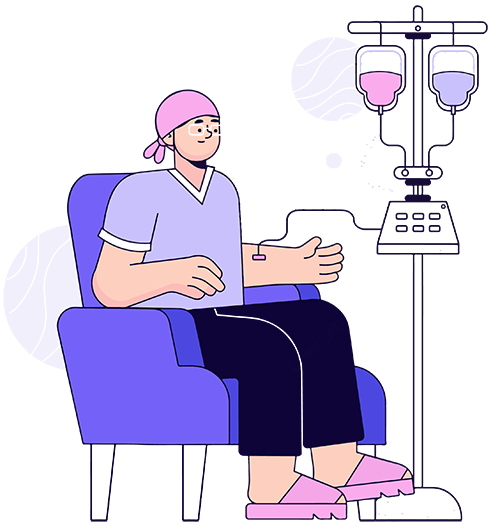Chemotherapy is a medicinal treatment that uses strong chemicals to kill your body’s fast-growing cells. It is commonly used to treat cancer because cancer cells grow and proliferate significantly faster than the rest of the body’s cells.
Chemotherapy medications come in a variety of forms and can be used to treat a wide range of malignancies, either alone or in combination.
It is an effective treatment for many types of cancer, but it also comes with a risk of adverse effects. Some chemotherapy side effects are minor and controllable, while others can be life-threatening.
Why is it done?
Chemotherapy can be used in a variety of situations for cancer patients:
- To eliminate the need for additional therapies in order to cure cancer. Chemotherapy is a treatment option for cancer that can be used as a primary or sole treatment.
- To eliminate hidden cancer cells after prior therapies. Chemotherapy can be used after other therapies, such as surgery, to eliminate any remaining cancer cells. Adjuvant treatment is what doctors term it.
- To get you ready for other procedures. Chemotherapy can reduce a tumor enough to allow for further therapies like radiation and surgery. Neoadjuvant treatment is what doctors term it.
- To reduce the severity of signs and symptoms. Chemotherapy can help alleviate cancer signs and symptoms by destroying some cancer cells. This is described as palliative chemotherapy by doctors.
Does it have side-effects?

In chemotherapy, the patient is given a combination of ‘cancer cell killing drugs’.Each medicine has its own set of adverse effects, and not all drugs produce all of them. In fact, Many of these adverse effects are avoidable or treatable. The majority of side effects fade away once treatment is completed.
Here are some common side-effects:
- Hair loss
- Loss of appetite
- Nausea & vomiting
- Diarrhea
- Bleeding
- Fatigue
- Fever
- Easy bruising
How frequently do you need chemotherapy sessions?
Based on the chemicals you’ll receive, the characteristics of your cancer, and how well your body recovers after each treatment, your doctor will determine how often you’ll undergo chemotherapy treatments. So, naturally, chemotherapy treatment plans differ from one patient to another. Chemotherapy treatment can be continuous or alternate between treatment and rest periods to allow you to recover.
